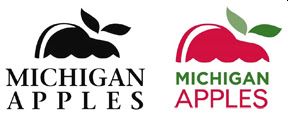In a rare case involving a geographic certification mark
(sometimes called a certification mark of regional origin), the
Board affirmed a Section 2(d) refusal of the mark REAL
MICHIGAN for hard cider (MICHIGAN disclaimed), finding it
likely to cause confusion with the two registered geographic
certification marks shown below, for apples. Although in a typical
Section 2(d) analysis, a geographic term is usually accorded less
weight, that is not the case when considering a geographic
certification mark. A geographic certification mark is deemed
distinctive because it serves to designate and certify the
particular geographic origin of the relevant goods or service, and
should not be considered "weak" or subject to a narrower
scope of protection. In re St. Julian Wine Company, Inc.,
Serial No. 87834973 (May 27, 2020) [precedential] (Opinion by Judge
Angela Lykos).

The Board pointed out that "certification marks indicate that goods or services provided by persons other than the mark owner adhere to specified standards set by the mark owner, whereas trademarks indicate the source of the goods or services." Geographic certification marks certify that an authorized user's goods or services originate in a specific geographic region. Here, the certification statement on each of the cited registrations is as follows: "[t]he Certification mark, used by persons authorized by certifier, certifies that the goods bearing the mark consist of apples grown in the State of Michigan."
Section 2(e)(2), which bars registration of primarily geographically descriptive marks absent a showing of acquired distinctiveness under Section 2(f), 15 U.S.C. § 1052(f), does not apply to geographic certification marks.
As to the involved goods, the Board noted that apples are a necessary component of hard cider, and s hard cider could be made from apples certified with registrant's mark. The Board therefore found "a commercial relationship between Applicant's 'hard cider' and Registrant's identified goods and that the goods are related, meaning that this DuPont factor weighs in favor of finding a likelihood of confusion."
As to the marks, the Board noted that "[s]pecial considerations apply with regard to the first DuPont factor and geographic certification marks." A registered certification mark containing a geographic designation that functions to certify regional origin is not considered geographically descriptive under Section 2(e)(2).
Applicant argues that the dominant portion of its mark is the initial word REAL, which serves to distinguish the marks. It contended that its mark "suggests a geographical area and a product that is not artificial" whereas the cited certification marks "suggest a geographical area and a fleshy round fruit (apple or apple-flavored) product." Not surprisingly, the Board found that the involved marks convey a similar connotation and commercial impression: designating goods from the State of Michigan. The Board acknowledged that the marks differ in sound and appearance, but those differences are outweighed by the similarities in connotation and commercial impression.
Balancing the relevant du Pont factors, the Board found confusion likely and it affirmed the refusal.
Read comments and post your comment here.

The Board pointed out that "certification marks indicate that goods or services provided by persons other than the mark owner adhere to specified standards set by the mark owner, whereas trademarks indicate the source of the goods or services." Geographic certification marks certify that an authorized user's goods or services originate in a specific geographic region. Here, the certification statement on each of the cited registrations is as follows: "[t]he Certification mark, used by persons authorized by certifier, certifies that the goods bearing the mark consist of apples grown in the State of Michigan."
Section 2(e)(2), which bars registration of primarily geographically descriptive marks absent a showing of acquired distinctiveness under Section 2(f), 15 U.S.C. § 1052(f), does not apply to geographic certification marks.
As to the involved goods, the Board noted that apples are a necessary component of hard cider, and s hard cider could be made from apples certified with registrant's mark. The Board therefore found "a commercial relationship between Applicant's 'hard cider' and Registrant's identified goods and that the goods are related, meaning that this DuPont factor weighs in favor of finding a likelihood of confusion."
As to the marks, the Board noted that "[s]pecial considerations apply with regard to the first DuPont factor and geographic certification marks." A registered certification mark containing a geographic designation that functions to certify regional origin is not considered geographically descriptive under Section 2(e)(2).
Rather, a geographic certification
mark is deemed distinctive because it serves to designate and
certify the particular geographic origin of the relevant goods or
services. Consequently, a registered geographic certification mark
should not be considered 'weak' or subject to a narrower
scope of protection. Thus, we consider the "Michigan"
component of the phrase MICHIGAN APPLES in the involved marks as
inherently distinctive because it indicates the certification of
the geographic source of the apples.
Applicant argues that the dominant portion of its mark is the initial word REAL, which serves to distinguish the marks. It contended that its mark "suggests a geographical area and a product that is not artificial" whereas the cited certification marks "suggest a geographical area and a fleshy round fruit (apple or apple-flavored) product." Not surprisingly, the Board found that the involved marks convey a similar connotation and commercial impression: designating goods from the State of Michigan. The Board acknowledged that the marks differ in sound and appearance, but those differences are outweighed by the similarities in connotation and commercial impression.
Balancing the relevant du Pont factors, the Board found confusion likely and it affirmed the refusal.
Read comments and post your comment here.
The content of this article is intended to provide a general guide to the subject matter. Specialist advice should be sought about your specific circumstances.

